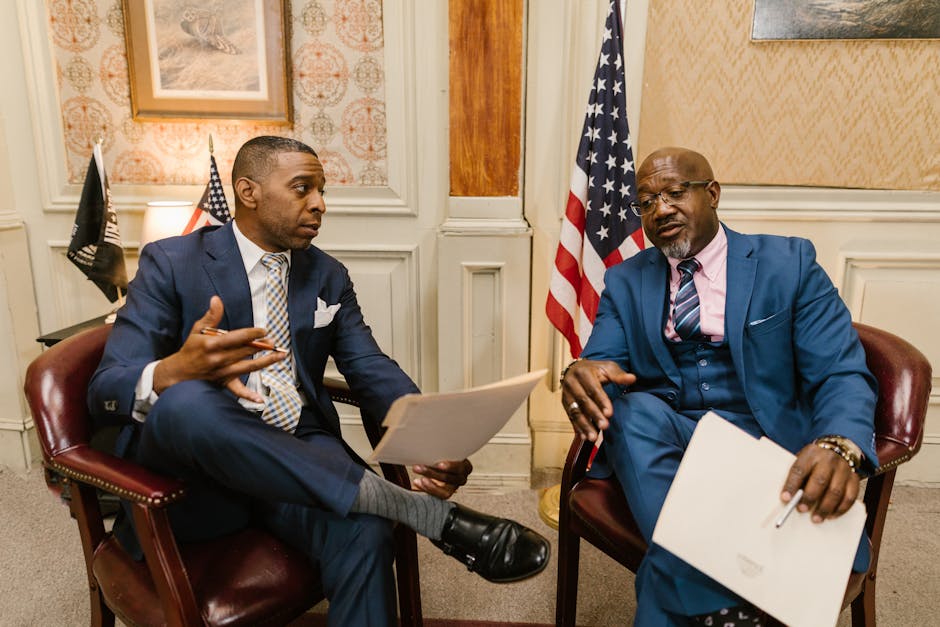Unlocking the Power of Collaboration: NGOs Working Hand in Hand with Government Agencies
When it comes to addressing complex social issues, the collaboration between non-governmental organizations (NGOs) and government agencies can be a game-changer. These partnerships bring together diverse expertise, resources, and networks to tackle challenges that no single entity could solve alone. From promoting human rights to environmental conservation, from healthcare access to poverty alleviation, NGO-government collaborations have the potential to drive positive change on a massive scale.
But how exactly do these collaborations work? What are the benefits and challenges involved? And what can we learn from successful examples of NGO-government partnerships? In this article, we will delve deep into the world of NGO collaboration with government agencies, exploring the intricacies, opportunities, and impact of these alliances.
The Evolution of NGO-Government Partnerships

NGOs have a long history of working alongside government agencies to address social, economic, and environmental issues. The roots of this collaboration can be traced back to the early 20th century when organizations like the Red Cross partnered with governments to provide humanitarian aid during times of crisis. Over the years, the role of NGOs in governance has expanded, with many organizations now playing a vital role in policy advocacy, service delivery, and community development.
Government agencies, on the other hand, have recognized the value of partnering with NGOs to leverage their expertise, reach, and grassroots connections. By working together, governments and NGOs can pool their resources, share knowledge, and amplify their impact on society. This collaborative approach is especially effective in addressing complex, multifaceted challenges that require a coordinated response from multiple stakeholders.
The Benefits of NGO-Government Collaboration

There are numerous benefits to be gained from NGO collaboration with government agencies. One of the key advantages is the ability to tap into the unique strengths of each partner. NGOs often have specialized knowledge, innovative approaches, and strong community ties that can complement the resources and authority of government agencies. By combining their expertise, NGOs and governments can develop more effective, sustainable solutions to pressing social issues.
Another benefit of NGO-government partnerships is the ability to reach marginalized or underserved populations. NGOs are often deeply rooted in local communities and have a deep understanding of the needs and challenges faced by vulnerable groups. By working together, NGOs and government agencies can ensure that their programs and policies are inclusive, equitable, and responsive to the diverse needs of the population.
Furthermore, NGO-government collaborations can help build trust and legitimacy among stakeholders. When NGOs and governments work together transparently and inclusively, they demonstrate a commitment to shared goals and values. This can enhance the credibility of both partners and create a sense of ownership and accountability among the communities they serve.
Case Studies in Effective NGO-Government Partnerships

One shining example of successful NGO collaboration with government agencies is the Partnership for Maternal, Newborn & Child Health (PMNCH). This global alliance brings together governments, NGOs, and other stakeholders to improve maternal and child health outcomes worldwide. By coordinating efforts, sharing best practices, and mobilizing resources, PMNCH has made significant strides in reducing maternal and child mortality rates in many countries.
Another noteworthy case is the collaboration between the World Wildlife Fund (WWF) and government agencies to protect endangered species and habitats. By working together on conservation initiatives, conducting research, and advocating for policy changes, WWF and governments have been able to preserve biodiversity, mitigate climate change, and promote sustainable development.
These examples demonstrate the power of NGO-government partnerships to achieve meaningful, measurable impact on a global scale. By leveraging their respective strengths and working towards a common vision, NGOs and governments can address some of the most pressing challenges facing our world today.
Challenges and Controversies in NGO-Government Collaborations

While NGO-government collaborations offer many benefits, they are not without challenges and controversies. One common issue is the potential for power imbalances between NGOs and government agencies. Governments often have more authority, resources, and political influence than NGOs, which can create tensions in decision-making, resource allocation, and goal-setting.
Another challenge is the risk of co-optation or capture by governments. When NGOs rely heavily on government funding or partnerships, they may face pressure to align their priorities and activities with the agenda of the government. This can compromise their independence, credibility, and ability to advocate for marginalized or dissenting voices.
Furthermore, disagreements over values, strategies, and priorities can arise in NGO-government collaborations. NGOs are often driven by values such as social justice, human rights, and environmental sustainability, while governments may prioritize economic growth, national security, or political stability. Balancing these competing interests can be a delicate and complex process that requires open communication, trust-building, and mutual respect.
Common Misconceptions about NGO-Government Partnerships
There are several misconceptions about NGO collaboration with government agencies that need to be addressed. One common misconception is that NGOs are inherently more efficient, transparent, and accountable than governments. While NGOs often operate with greater flexibility and agility than bureaucratic government agencies, they are not immune to challenges such as corruption, mismanagement, and mission drift.
Another misconception is that NGOs and governments always share the same goals and interests. In reality, NGOs and governments have distinct mandates, constituencies, and incentives that can sometimes conflict with each other. Finding common ground and building consensus in NGO-government partnerships requires ongoing dialogue, negotiation, and compromise.
Despite these challenges and misconceptions, NGO collaboration with government agencies remains a powerful tool for driving social change, promoting sustainable development, and advancing human rights. By harnessing the collective strengths of diverse stakeholders, NGOs and governments can create a more equitable, inclusive, and just society for all.
Conclusion: Towards a Brighter Future through Collaboration
As we have explored in this article, NGO collaboration with government agencies holds tremendous potential to address some of the most pressing challenges facing our world today. By working together, NGOs and governments can leverage their expertise, resources, and networks to achieve greater impact, reach underserved populations, and build trust among stakeholders.
While there are challenges and controversies inherent in NGO-government partnerships, the benefits far outweigh the risks. By learning from successful examples, addressing misconceptions, and navigating complexities with transparency and integrity, NGOs and governments can create a more just, sustainable, and inclusive world for future generations.
So, let us continue to champion collaboration, dialogue, and partnership between NGOs and government agencies. Together, we can make a difference, change lives, and build a brighter future for all.




